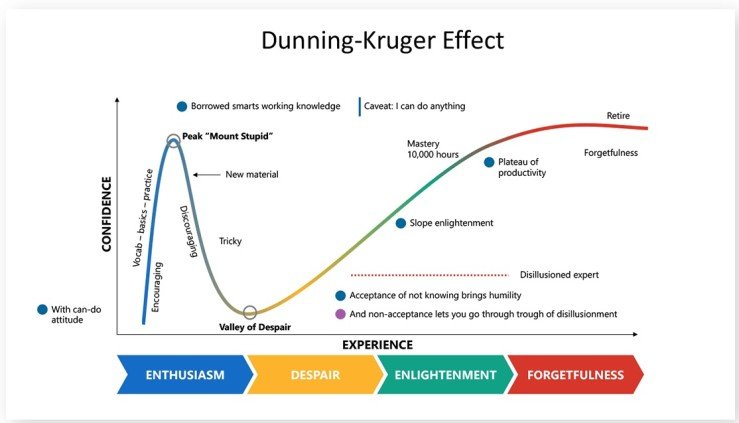Articles by Oakleigh Wealth

Open Palm vs. Closed Fist
In the delicate act of holding a feather, we are presented with a profound metaphor for life itself. We can clasp it tightly within a closed fist or cradle it gently in the open palm of our hand. Each approach reflects a unique philosophy.
The closed fist represents our instinct to cling to what we cherish, to shield it from the unpredictable wind of change. It's an act of guarding, protecting, and controlling. We often do this out of fear or the desire for certainty and assurance. But, as we clench our fists, we inadvertently obscure the very beauty of what we hold. And what’s more, life rarely conforms to our demands for control.

Rethinking Monte Carlo Simulations
Monte Carlo simulations are a common tool in the financial adviser’s toolkit. They can help us frame the likelihood of success of a given plan by applying a large number of statistical simulations of future market returns to your financial plan.
On paper, this approach to financial planning makes a lot of sense; however, applying Monte Carlo analysis as an ongoing real-world decision-making tool often results in misunderstanding, anxiety, and/or overconfidence.

Two Logics
We live in a culture that has become wildly imbalanced, like a bodybuilder who has pumped his right side up to excessive proportion while allowing his left side to shrivel away

Look beyond bonds for sustainable retirement income
With the recent increase in interest rates, retirees or those nearing retirement might find it tempting to invest their nest eggs in longer-dated government bonds to secure a stable, long-term income. After enduring the "Great Financial Crisis," it's understandable why exiting the stock market might seem appealing. When you have only a few working years left or have already retired, the prospect of another market downturn can be quite daunting.
However, following this line of thinking could lead you into trouble!

Maximizing Your HSA’s Full Potential: Stop Using It Like an Expense Account
Health Savings Accounts (HSAs) allow you to pay for a wide variety of qualifying healthcare expenses with pre-tax dollars. But this may not be the best use of your HSA funds (at least not now).
If you have the financial means to pay your healthcare costs directly, you might find greater value in treating your HSA as a long-term retirement savings tool rather than a healthcare checking account. This is particularly advantageous if you are younger, in relatively good health, and can afford to pay for minor medical expenses out of pocket. In the long run, it may be in your best interest to invest those HSA dollars for the long term, allowing the balance to grow and compound tax-free for use later in life or in an emergency.

10 Free & Effective Ways to Protect Yourself from Identity Theft
The threat of identity theft looms larger than ever before. Cybercriminals are constantly finding new ways to steal personal information and wreak havoc on your financial well-being. Protecting yourself from identity theft is an essential piece of a comprehensive financial plan. Here are ten inexpensive and effective things you should be doing to safeguard your identity:

Can I make a “Mega Backdoor Roth” Contribution?
Say you have maxed out your pre-tax IRA and 401(k) contributions (or Roth IRA and Roth 401(k), if current tax rates are lower) and you still have the ability to save more, you don't need liquidity and want to do it as tax efficiently as possible.
In certain cases, you may be eligible to make a Mega Backdoor Roth contribution and contribute tens of thousands more to your Roth IRA, regardless of your income level.

Q: How much liability insurance do I need? A: As much as you can get!
Cut to the chase: with liability insurance, you should carry as much as you can. Most individuals and families carry liability insurance from two main sources: their home and auto insurance policies. But this may not be enough to fully protect your assets in case of an accident or a lawsuit.
That’s where “umbrella” insurance comes in, to cover you above the liability limits of your home and auto policies. However, you must coordinate coverage with your home and auto policies to make sure that you don’t have a potentially expensive gap in coverage.

You need a will, but do you need a lawyer?
Estate planning can be an uncomfortable subject. Most of us would prefer not to think about our demise, so we avoid it. Or, you may not know where to start, and the added hurdle of finding a lawyer has led you to put off creating or updating your will. But, like most people, you probably don’t need a layer to make a will.

How much life insurance do I need?
If there is someone in your life who depends upon your current and future income for financial support, then you probably need life insurance to transfer the financial risk of an untimely death. The proceeds of a life insurance policy can cover your family’s immediate financial needs in the wake of your death, replace lost income, repay debt, and provide for your family’s expenses and goals. But how do I know how much and what type of insurance to buy?

Equity Compensation: opportunities, risks, biases, and taxes
Long the domain of only the C-suite and key employees, equity compensation is increasingly used to motivate and retain younger and mid-level employees of the leanest startups to the largest public and private enterprises.
But, while these programs offer the potential for significant wealth accumulation, they also increase the level of risk the employee and her family are exposed to should the company take a turn for the worse. Armed with the knowledge of how these programs work and how they fit within your overall financial plan, you can take advantage of them from a position of clarity and security.

Stock Options: ISOs and NSOs
Stock options give the recipient the right, but not the obligation, to purchase shares of company stock at a predetermined price for a certain period. If the price of the company stock increases, the option holder will be able to purchase shares at a lower price than the current market price once the options vest (or the plan may allow for early exercise). Stock options have a lot of financial leverage, meaning if the stock goes up a lot you can receive a huge amount of value.

Employee Stock Purchase Plans
Employee Stock Purchase Plans give participants the chance to buy company stock at a discount of up to 15% and are funded with regular paycheck withholdings. At the end of the offering period, you can sell the shares and lock in a nearly “risk-free” profit that will be taxed just like a cash bonus, or if you hold the shares, you may become eligible for more favorable capital gains treatment for a portion of the gain (assuming there are gains!)

Restricted Stock Units (RSUs)
RSUs are one of the simplest and most common forms of equity compensation. They are essentially a promise of a given quantity of stock at a future date. Once the shares are vested and taxes are accounted for, you own the company stock just as if you had purchased it on your own. The key question to ask yourself when deciding whether to hold the shares or sell them immediately is this: “If I got a cash bonus instead, would I use it to buy shares in my company?” If not, that’s a good indication that you should just cash out now, or as the Steve Miller Band put it, “Go ahead, take the money and run!”

Tax Prep. vs Tax Planning
To many, this may seem like a distinction without a difference or a trigger for mild nausea and severe eye-glazing! While both are as important as they are interrelated, they are rather distinct in practice.

June 2023 Newsletter: Tax Planning
This month's newsletter is all about taxes!
You're already ahead of the pack if you’ve kept reading beyond the first line. So many individuals try to limit the time and brain space devoted to taxes to the scramble of weeks leading up to Tax Day. The saying about “death and taxes” notwithstanding, there actually is something to be done when it comes to managing the impact and timing of your tax liability over the long run. Still, the time to do something about it is not the first two weeks of April when the bill comes due.

Defining the Elements
At Oakleigh, we use an app called Elements to show a quick snapshot of your financial health and track specific key metrics over time. This is very similar to how a doctor might track your vital signs to understand your physical health and quickly diagnose specific issues. Of course, there’s a story behind all of these numbers and we would dive much deeper for a full financial planning engagement. However, you might be surprised by how many important issues can be uncovered and addressed from these high-level metrics alone.

To Roth or Not to Roth? Deciding Between Roth and Tax-Deferred Savings
The decision of whether to contribute to a Roth or a traditional retirement account basically boils down to timing: do I pay taxes now or later? While both types of retirement accounts are powerful tools for building wealth, this seemingly simple binary can produce some unique planning opportunities with meaningful tax savings for many individuals.

Donor Advised Funds: Don’t be daft, use a DAF
Donor Advised Funds(DAFs) are a simple but powerful tool to facilitate charitable donations, manage tax liabilities, and create a culture or legacy of charitable giving. No one donates to charity just to save on their taxes (the math doesn’t work like that!), and the many personal benefits of charitable giving are not necessarily correlated with the size of your gift or the resultant tax deduction. However, if you are already inclined to give (and I recommend it), DAFs are one of the more effective arrows in the quiver of a financial planner.

The Dunning-Kruger Effect (in investing (and life)
Dunning & Kruger’s study demonstrated something we all know to be true from experience: people with low levels of knowledge, skill, or competence tend to overestimate their own abilities. Their findings have broad implications for personal finance and investing, but it also raises broader questions about the human experience more generally. We are all prone to over confidence. Mastery, in any arena of life, requires that we overcome the despair of failure through dilligence and humility. But is that all there is?



